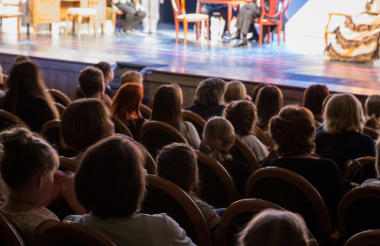A survey has found that nearly three quarters of arts and culture sector organisations consider their reputations to be vulnerable to damage through association with sponsors or major donors.
This finding comes from a survey conducted by ArtsProfessional, the results of which have been reproduced in report called Ethics in arts sponsorships. Of the 589 respondents, 74 per cent said they felt their organisation was vulnerable to “reputational damage through association with sponsors/major donors”.
A further 54 per cent said they feared that “financial pressure may lead their organisation to accept support from an inappropriate sponsor or major donor”.
As the report notes, a number of respondents “pointed to a lack of time, money and resources as a key factor in their organisation’s vulnerability to accepting support from an inappropriate source”.
Arts and culture institutions have long been vulnerable to criticism after accepting money from large corporate donors. For example in 2016, The Tate faced severe media and public criticism when it was forced by the ICO to reveal that it had received £2.5m from BP, between 2007 and 2011.
The report also finds that just 27 per cent of respondents to the survey said they were aware of their organisation “having a policy in place to guide ethical decision-making in relation to fundraising”.
These findings don’t seem to tally with the fact that 97 per cent of survey respondents said “organisations should definitely or probably consider the activities of potential sponsors or major donors before accepting support”.
The report said: “While there is a clear imperative for arts organisations to weigh up the risks and rewards before accepting a sponsorship deal or major gift, the findings of this survey reveal there is a split in opinion about what motive should underline this decision-making process.
“It is clearly difficult to draw ‘red lines’ – there are no universal ethics and decisions must depend on circumstance. But the risks of getting it wrong are great and every organisation that accepts sponsorship or major donations must take an informed and strategic approach to doing so.
“The only obvious starting place is more open debate and transparency, from all parts of the sector.”
The report can be read in full here.
|
Related Articles











